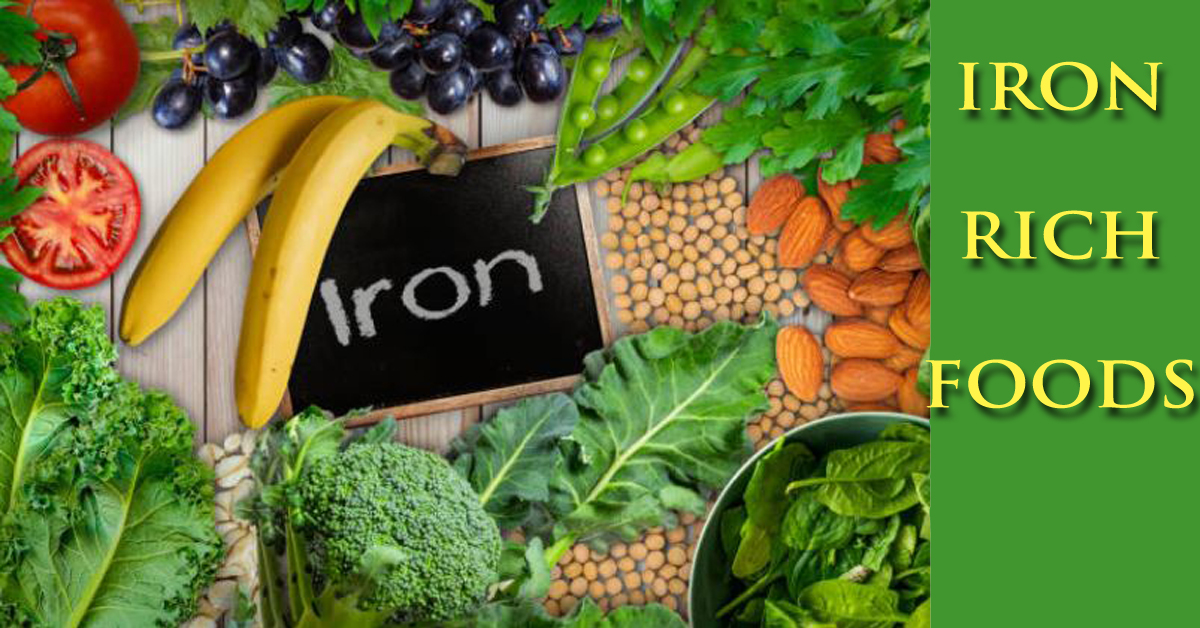Iron-Rich Foods: 8 Essential Foods to Include in Your Diet!
Iron, a crucial mineral for your body, plays a vital role in the production of red blood cells and oxygen transportation.
Insufficient iron intake can lead to various health issues such as anemia, dizziness, irritability, headaches, and fatigue. On average, it is recommended to consume 18 mg of iron daily, although the requirement varies depending on age and gender. For instance, men require 21 mg, while menstruating women need 18 mg per day. Pregnant women have a higher demand, requiring 35 mg daily.
Iron can be acquired from two primary sources: heme iron and non-heme iron. Heme iron, found in poultry, fish, and meat, is easily absorbed by the body, making it more efficient in increasing iron levels. On the other hand, non-heme iron is derived from plant-based foods like nuts, vegetables, and fruits. Although the absorption of non-heme iron is relatively more challenging, consuming foods rich in Vitamin C can aid in its absorption.
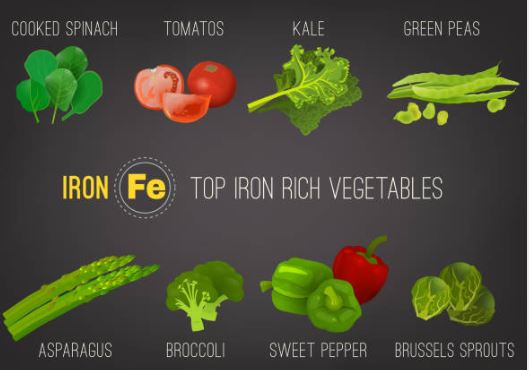
8 Exceptional Iron-Rich Foods to Incorporate into Your Diet
Enhance your iron intake by including these nutritious foods in your diet. Here’s a list of iron-rich foods that can significantly boost your iron levels:
1. Invigorating Iron-Rich Fruits
Add fruits such as mulberries and olives to your diet, as they offer substantial amounts of iron.
By consuming 100 grams of olives, you can acquire 3.3 mg of this crucial mineral, which fulfills 18% of your daily requirement. Olives also provide vitamins E and A, beneficial fats, and fiber, and reduce the risk of heart diseases, making them a valuable addition to your diet.
Mulberries boast great nutritional value, offering 1.9 mg of iron per 100 g, contributing significantly to your daily requirement. Additionally, mulberries are an excellent source of vitamin C, fulfilling 85% of your dietary needs.
These iron-rich fruits contain antioxidants that safeguard your body against certain types of cancer, diabetes, and heart disease.
Prune juice is another option, commonly consumed to alleviate constipation. Just one cup of prune juice (237 ml) provides 3 mg of iron, which accounts for 17% of your daily requirement. Prunes are also rich in manganese, vitamin B6, fiber, vitamin C, and potassium.
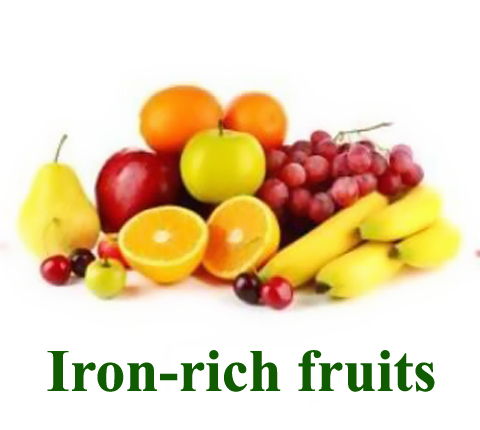
2. Nutritious Iron-Rich Whole Grains
Whole grains are not only packed with various nutrients but also offer a good amount of iron. They provide numerous health benefits, including reduced risks of heart disease, type 2 diabetes, and obesity.
For instance, one cup of cooked quinoa supplies 2.8 mg of iron, meeting 16% of your daily needs. In addition to being gluten-free, quinoa is a rich source of minerals, complex carbohydrates, protein, vitamins, and fiber.
A single serving of oats offers 3.4 mg of iron, equivalent to 19% of your daily requirement. Oats also provide folate, magnesium, fiber, zinc, and protein.
Oats contain beta-glucan, a soluble fiber that promotes a feeling of fullness, improves gut health, and regulates blood sugar levels.
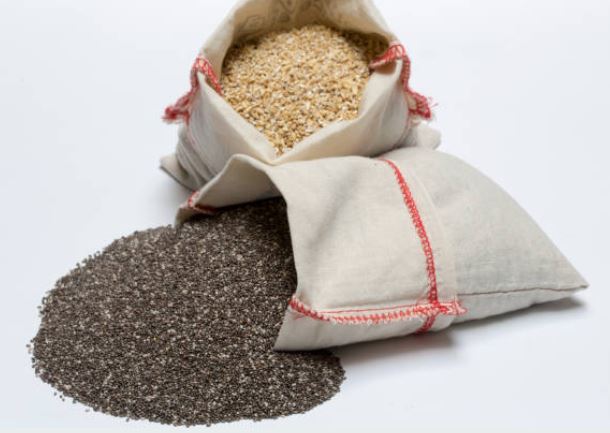
It’s important to choose whole grains over processed grains, as the latter often lacks essential minerals, vitamins, fiber, and antioxidants due to the manufacturing process.
3. Iron-Packed Leafy Greens
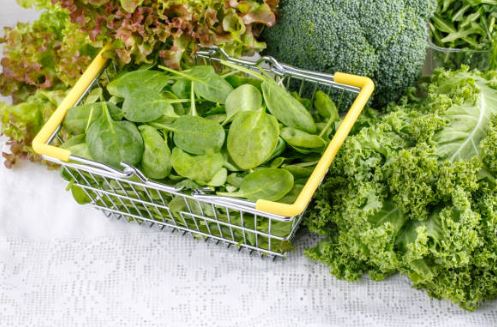
Include beet greens, collard greens, Swiss chard, kale, and spinach in your diet.
A single serving of these leafy greens can provide you with anywhere between 2.5 to 6.4 mg of iron, covering 14% to 36% of your daily requirement. Pairing these greens with healthy fats like olive oil enhances the absorption of carotenoids in your body.
4. Nourishing Iron-Rich Legumes
Lentils are an excellent choice, with one serving (cooked) offering 6.6 mg of iron, fulfilling 37% of your daily requirement. All legumes, including soybeans, lentils, beans, peas, and chickpeas, are great for maintaining adequate iron levels.
Legumes also serve as good sources of potassium, folate, and magnesium. Their high fiber content promotes satiety, reducing overall calorie intake and aiding in weight loss.

5. Iron-Enriched Red Meat
Red meat is a notable source of heme iron, effectively reducing the risk of iron deficiency.
Regular consumption of red meat is vital for individuals susceptible to anemia. A single serving of ground beef provides 2.7 mg of iron, covering 15% of your daily requirement. Red meat also contains essential nutrients such as vitamin B, selenium, protein, and zinc. Research published by the National Center for Biotechnology Information indicates that women who consume meat after aerobic exercises absorb iron better than those who rely on supplements.

6. Iron-Enriched Pumpkin Seeds
Pumpkin seeds are not only rich in iron but also offer vitamin K, zinc, and manganese. A 28 g serving of pumpkin seeds contains 4.2 mg of iron, fulfilling 23% of your daily intake.
Additionally, pumpkin seeds are a great source of magnesium, which reduces the risk of insulin resistance and diabetes. Convenient to carry around, pumpkin seeds make for a healthy and satisfying snack throughout the day.
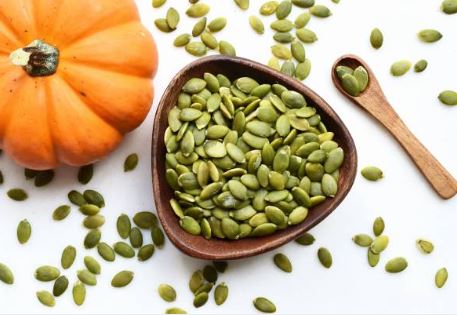
7. Iron-Rich Dark Chocolate
Indulging in dark chocolate can contribute to approximately 19% of your daily iron requirement. Dark chocolate also provides magnesium, copper, and prebiotic fiber, which are beneficial for your overall health.
Dark chocolate’s antioxidant content protects your cells from free radicals, making it an excellent addition to your diet. Choose dark chocolate with over 60% cacao content for optimal benefits.
Flavanols, a compound found in chocolate, is responsible for its positive health effects. Replace milk chocolates with their dark counterparts to enjoy a mineral-rich and delectable treat.

8. Iron-Infused Broccoli
A 1-cup serving of cooked broccoli contains 1 mg of iron, fulfilling 6% of your daily requirement. Although moderate, broccoli is a valuable source of iron.
This nutrient-rich vegetable also provides fiber, as well as vitamins C and K. Cruciferous vegetables like broccoli, cauliflower, and Brussels sprouts contain plant compounds believed to protect against cancer.
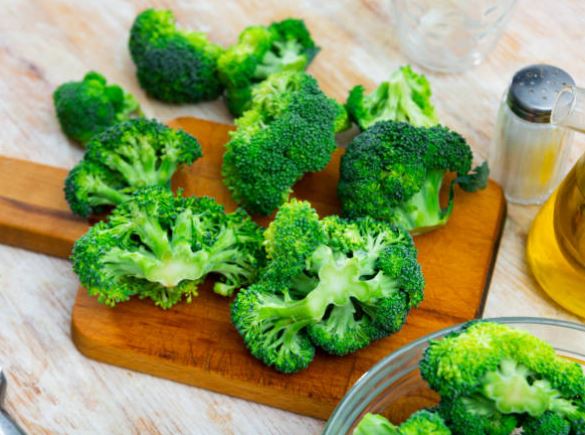
Unveiling the Health Benefits of Iron
The health benefits of iron often go unnoticed until a deficiency arises. Incorporating iron-rich foods into your diet offers numerous advantages, and here are a few key ones:
- Strengthened Immune System
Iron promotes the production of red blood cells, facilitating the repair of cells and tissues. This, in turn, enhances the body’s immune response, helping to fight off infections and diseases. Consuming sufficient iron daily is crucial for boosting your immune system.
- Enhanced Muscle Strength
Iron deficiency is closely linked to muscle weakness. A diet rich in iron ensures an adequate supply of oxygen for muscle contraction.
Insufficient iron intake increases the likelihood of muscle fatigue and inflammation, leading to higher levels of pain. By increasing your iron consumption, you can alleviate pain and improve muscle strength.
- Improved Cognitive Function
Iron also plays a role in optimizing brain function. Approximately 20% of the oxygen in your blood is utilized by the brain, and iron aids in its delivery. Therefore, consuming iron-rich foods directly impacts brain health and cognitive abilities.
Proper blood flow in the brain stimulates brain activity and helps prevent cognitive disorders. Hence, iron consumption is key to maintaining good brain health.
- Healthier Pregnancy
During pregnancy, it is crucial for the fetus to receive an adequate supply of nutrients and oxygen to support its growth. Consequently, the body requires higher amounts of iron to meet this demand. Including iron-rich foods in your diet increases the production of red blood cells and blood volume.
Pregnant women’s bodies naturally strive to enhance iron absorption.
However, factors such as inadequate consumption of iron-rich foods can result in deficiency. Insufficient iron levels can increase the risk of low birth weight, and premature birth, and hinder the behavioral and cognitive development of the newborn. Ensuring sufficient iron intake during pregnancy is essential for the health of both the mother and the child.
- Enhanced Athletic Performance
Athletes, particularly women, are more susceptible to iron deficiency compared to non-active individuals. Iron deficiency adversely affects performance and increases the risk of various diseases.
Insufficient iron levels impair your ability to push your body to its limits during physical exertion. Inadequate hemoglobin levels mean less oxygen is available to your muscles. For activities like long-distance runs or endurance sports, increasing iron-rich food intake beyond the norm is crucial.
Recognizing Iron Deficiency
Iron is essential for the production of hemoglobin, and a deficiency can result in low levels of red blood cells. Reduced hemoglobin levels mean less oxygen available for your muscles and tissues, leading to a condition known as anemia.
Iron deficiency anemia is the most prevalent type of anemia worldwide. Poor dietary choices are a common cause, but it can also result from inflammatory bowel disease, increased requirements during pregnancy, or excessive bleeding.
Watch out for the following symptoms of iron deficiency:
- Unexplained headaches
- Dizziness or lightheadedness
- Shortness of breath
- Dry and damaged hair or skin
- Paleness
- Heart palpitations
- Restless legs
- Mouth and tongue swelling and soreness.
In Summary
Incorporating iron-rich foods into your diet is the best way to enhance your iron intake. These foods offer numerous health benefits, including improved cognitive function, enhanced muscle strength, and a stronger immune system.
On the other hand, neglecting iron-rich foods can lead to iron deficiency and subsequent anemia, resulting in insufficient oxygen supply to your muscles and tissues.

To conclude, prioritize the inclusion of the aforementioned foods in your diet to reap the many benefits of consuming iron.
To read About Low Fiber Diet | What vegetables have low fiber?

